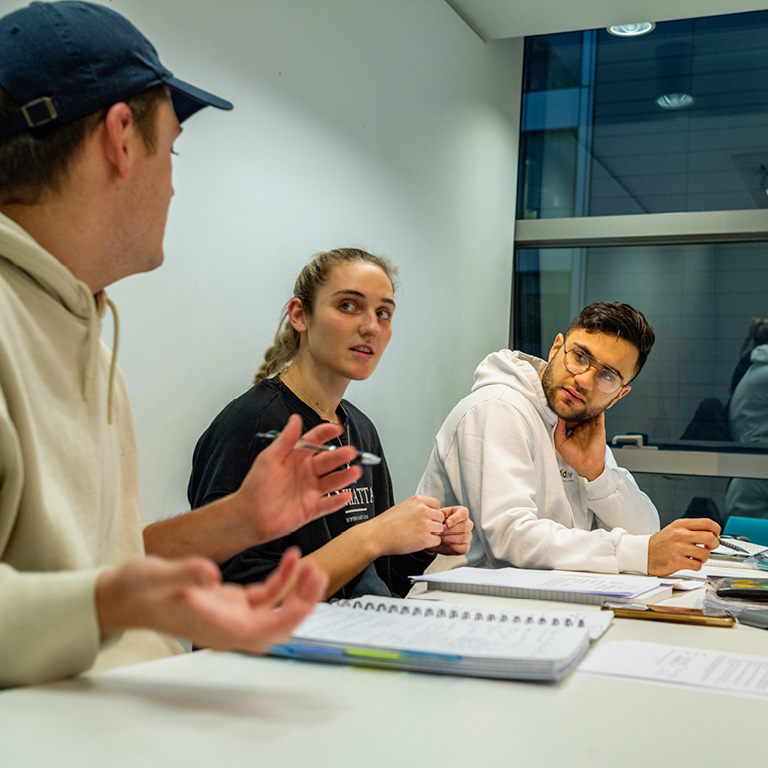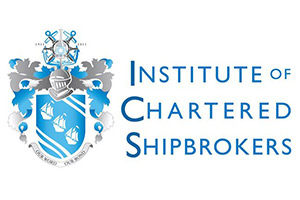Shipping, Trade and Finance MSc

Key information
Duration: 12 months
Attendance mode: Full-time
Fees: £29,500 (more information)
Location: Bunhill Row
Start of programme: September 2024
Application deadline: Rolling applications
Entry year: Showing course information for 2024
Offered through the globally-respected Costas Grammenos Centre for Shipping, Trade and Finance
Overview
Shipping, Trade and Finance MSc Who is it for?
Choose this course if you thrive under the pressure of solving tough challenges on tight deadlines, you’re business-focused, and you’re equally capable at hands-on, practical subjects and academic theories. You’ll already have the equivalent of a UK upper second class degree, and some experience of studying finance or quantitative methods.
You’ll appreciate the value of having a qualification – equally respected by academia and the industry – that prepares you for roles from shipping finance, shipbroking to commodity trading. You’ll also relish the opportunity to make new connections with business leaders from the global shipping industry, as well as your peers from all around the world.
Why choose this course?
Become part of the globally-respected Costas Grammenos Centre for Shipping, Trade and Finance, who aim to: offer high-quality teaching; produce high-quality research; and support international dialogue between academia, industry and government.
Design your third term to meet your career goals and with a wide choice of specialist electives including Big Data in Commercial Shipping and Trading; Commodity Derivatives and Trading; Green Finance, Carbon Trading and Shipping Decarbonisation.
Guest industry practitioners deliver some of our modules and will share topical industry insight and expertise.
Opportunity to collaborate with the industry on your research project; previous students have conducted their projects in association with the Bank of England and the Maritime Directorate of the UK Department for Transport (DfT).
Attend guest speeches, career and networking events, by leading companies in the fields of shipping, commodity trading and finance. We regularly host successful alumni at Bayes who deliver presentations and advise our current students.
Course objectives
On your master’s in Shipping, Trade and Finance you’ll build skills and knowledge to help you stand out in the competitive shipping industry and complementary areas of commodity trade, ship finance, banking and investment.
Your flexible course allows you to tailor your studies to your ambitions, including research projects and a wide choice of electives, covering subjects from big data and fintech in shipping to project finance or Python, with the chance to study in Greece or Madrid.
The MSc is offered through the globally-respected Costas Grammenos Centre for Shipping, Trade and Finance whose aims are to offer high-quality teaching, produce high-quality research and support international dialogue between academia, industry and government.
You’ll learn in highly interactive lectures from staff with many years of practical experience working in the shipping industry who are active researchers.
"I liked the fact that the programme combined both shipping and finance modules and it also gives students more career opportunities as it has abundant resources and networks. I will be joining Coca Cola as a Management Trainee and I am so excited for this opportunity and my master’s course for helping me obtain this role. This programme would be an excellent choice for you to progress your career in the industry."
- Huimin Hu
Teaching staff
Dr Nikos C. Papapostolou

The teaching staff on the Master's in Shipping, Trade and Finance have many years of practical experience working in the shipping industry and are also active researchers in their fields. This knowledge and experience inform the highly interactive lectures that make up the MSc in Shipping, Trade and Finance course.
Core module leaders include
- Professor Costas Grammenos
- Professor Amir Alizadeh
- Dr Jay Jung
- Dr Ioannis Moutzouris
- Professor Nikos Nomikos
- Dr Panos Pouliasis
- Dr Anastasia Richmond
- Professor Michael Tamvakis.
For a list of Visiting Professors, Fellows and Lecturers, and Guest Lecture Speakers please visit The Costas Grammenos Centre for Shipping, Trade and Finance.
Accreditation details
The MSc in Shipping, Trade and Finance is validated by the Institute of Chartered Shipbrokers (ICS)
Students successful in the following modules:
- International Commodity Trade
- Shipping Economics
- Shipping Investment and Finance.
will be granted exemption from three of the following examinations of the Institute of Chartered Shipbrokers:
- Economics of Sea Transport and International Trade
- Introduction to Shipping
- Shipping Finance.
Course content
Learn through a unique multidisciplinary approach that provides you with the skills and knowledge employers demand.
Benefit from the knowledge, practical expertise, and insights of internationally recognised academic staff and from practitioners (mostly graduates of our MSc Programme) who hold leading roles in their areas of expertise
Study on a course that was pioneering at launch and remains unique and relevant in the current economic and financial environment, and the shipping industry.
Validated by the Institute of Chartered Shipbrokers (ICS) which offers 3 exemptions from examinations upon successful completion of specific modules.
Course structure
Programme content is subject to change. We regularly review our module offering and amend to keep up to date and relevant.
Induction weeks
All of our MSc courses start with two compulsory induction weeks which include relevant refresher courses on economics and mathematics, an introduction to the careers services and the annual careers fair. Pre-study material (notes and videos) on mathematics and statistics are also provided to our students during the summer period to refresh their knowledge on the specific topics.
Term 1
Accounting for Managers
- 10 credits
- 30 contact hours
- 70 independent learning hours.
Outlines both the financial accounting and management accounting functions within organisations and provide you with the tools and understanding to apply this information in a decision making context.
Data Analytics for Energy, Shipping, Trade and Finance
- 10 Credits
- 42 contact hours
- 58 independent learning hours.
Introduces the concept of data analytics in the shipping, energy, trade, and finance sectors. In particular, it teaches you how to work efficiently with commodity, shipping, and financial data so as to make data-driven business decisions. It consists of two interrelated parts: Part 1 is Statistics and Part 2 is Data Analytics Using R.
Part 1: Statistics focuses on descriptive and inferential statistics, and regression analysis.
Part 2: Data Analytics Using R focuses on how to efficiently perform data analysis using the R statistical software.
Principles of Finance
- 10 credits
- 45 contact hours
- 55 independent learning hours.
Covers essential skills and knowledge in financial economics that will assist you in gaining an in-depth knowledge in the subject area as it is later taught in Corporate Finance. The aim of this module is to provide an introduction to the area of corporate finance. This will be achieved through the development of a common vocabulary and a set of tools that will assist students in gaining a basic understanding of what is corporate finance and it will lay the foundations for further study in this area.
Business Economics for Trade and Finance
- 10 credits
- 30 contact hours
- 70 independent learning hours.
Provides a practical understanding of the tools and language used by economists to analyse individual and organisational behavior (microeconomics), and the functioning of economies and networks of economies as a whole (macroeconomics). This is intended to provide you with a sound theoretical background with which to analyse and dissect real world events and interpret high level policy debates. The course is practical and applied in nature and focuses on cases that are relevant for Shipping and Commodity markets.
Shipping Economics
- 10 credits
- 30 contact hours
- 70 independent learning hours.
Focuses on the operational environment of the bulk-shipping sector. Subsequently discusses extensively the microeconomic structure of the four main markets (freight, second-hand, shipbuilding and demolition) in dry bulk and tanker shipping, together with the operational characteristics, international regulations and policies which affect these highly competitive, volatile, but nevertheless exciting industries. Continues with an introduction in liner and container shipping economics and concludes with a discussion of additional shipping sectors and an introduction to port economics.
Research Methods and Professional Skills*
- 10 credits
- 22 contact hours
- 78 independent learning hours.
Companies and institutions, both large and small, require individuals who are able to: carry out research independently; work in a group while maintaining a collegiate and productive environment; collect, organise and manipulate economic and financial data using an industry-standard spreadsheet programme; write up clear and crisp business reports based on information collected through desktop research and data processed in a spreadsheet programme; and make concise, yet clear, presentations to both lay and expert audiences.
This module brings together a number of tools which will develop your research and professional skills, in the context of your studies in energy, shipping, trade and finance. You will receive training in data analysis, business and financial modelling in Excel labs.
You will also learn how to gather information through database research, which you will be able to use to support your learning, substantiate your arguments and make assessments about the nature of the evidence you are using. Finally, you will bring these skills together by working in small groups for the preparation and presentation of a business plan proposal.
The Michael Baker Prize*
Every year, since 2018, the Best Research Methods and Professional Skills Business Plan is awarded the Michael Baker Prize, which comes with a £4,000 cash award to the winning group and £1,000 to the runners up group.
Term 2
Advanced Quantitative Methods
- 10 credits
- 26 contact hours
- 74 hours independent study.
Builds on the knowledge acquired in Data Analytics for Energy, Shipping, Trade and Finance in Term 1 and focuses on developing skills required for advanced quantitative analysis. It covers different applications such as risk analysis, forecasting and simulation techniques to solve problems in the shipping, energy, finance and commodity markets
Corporate Finance
- 15 credits
- 30 contact hours
- 120 hours independent study.
Develop an understanding of modern corporate finance so that the corporate manager, the investment banker and the financial analyst will have the conceptual foundations for making informed corporate assessments of key financial decisions.
Financial Markets
- 15 credits
- 30 contact hours
- 120 hours independent study.
Develops a clear and practical understanding of the role and importance of equity, bond, interest rate, and foreign exchange markets. Through empirical examples and case studies, it also demonstrates some of the unique problems of businesses that operate across national frontiers.
International Commodity Trade
- 15 credits
- 30 contact hours
- 120 hours independent study.
Focuses on the world's major bulk commodities, broadly arranged into energy, food, mineral and industrial goods. Commodities are examined in depth in order to establish distinctive micro-economic characteristics, focusing on demand, supply and pricing mechanisms. Trading practices for the commodities are also examined, including both physical and futures markets. On this foundation, the module goes on to discuss international transport systems and the development of advances through transport systems for the shipment of bulk and unitised commodities, and concludes with an introduction to the techniques and instruments available to finance commodity trade.
Shipping Investment and Finance
- 20 credits
- 90 contact hours
- 110 independent learning hours.
The skills developed in both Principles of Finance and Corporate Finance are applied to the shipping industry while introducing several new and important concepts to develop the ability and the analytical tools to make rational shipping investment and finance decisions. Making extensive use of case studies, areas covered include the fundamental principles of shipping investment and finance; vessel investment and disposal markets; investment feasibility studies; bank credit policy, bank credit analysis and proposals; raising equity and debt capital for shipping companies; tapping the public equity and debt markets; other sources of shipping finance such as leasing, export credit agencies and shipyard credit; and risk management in shipping.
Term 3
Option 1: Students can take five specialist elective modules (5 x 10 credits).
Option 2: Students can opt to write a 10,000-word Business Research Project (40 credits) and take one specialist elective module (1 x 10 credits).
Option 3: Students can opt to write a 5,000-word Applied Research Project (20 credits) and take three specialist elective modules (3 x 10 credits).
Business Research Project
It is important for aspiring professionals to demonstrate, on an individual basis, their ability to apply concepts and techniques they have learned in an in-depth study of a topic of their choice and to organise their findings in a report, all conducted within a given time limit. To train you to undertake individual research and provide you with an opportunity to specialise in a contemporary business or finance topic related to your future career aspirations. You are required to submit a project of approximately 10,000 words on any subject area covered in the rest of the programme. Typical projects can involve any of the following: extracting data from electronic databases or by hand; statistical analysis of large or small populations; interviews; case studies of an industry or a sector or of a business / finance issue in a particular country setting.
Applied Research Project
The aim of this module is to enable you to demonstrate how to integrate your learning in core and elective modules and then apply this to the formulation and completion of an applied research project. You will be required to demonstrate the skills and knowledge that you have acquired throughout your MSc study. You will undertake a short piece of applied research on a question of academic and/or practical relevance. Guidelines will be provided in order to help you identify the research question. Based on your chosen topic, you must write a report of around 3,000–5,000 words that summarises and critically evaluates your method and your findings.
Some of our students are given the opportunity to conduct their research projects in association with the Maritime Directorate of the UK Department for Transport (DfT) and the UK Department for Energy Security & Net Zero (DESNZ), or as part of the Maritime Masters Programme of Maritime UK and the Research Support Programme of the Bank of England. Upon completion, their findings are presented to senior policy makers and businessmen
Indicitive elective modules
- Ethics, Society and the Finance Sector
- Hedge Funds
- Mergers & Acquisitions
- Big Data in Commercial Shipping & Trading
- Chartering
- Commodity Derivatives and Trading
- Fintech: Technologies and Disruptions
- Green Finance, Carbon Trading and Shipping Decarbonisation
- Shipping Risk Management
- Trade Finance
- Introduction to Python
- Innovation in Shipping.
International electives
- Project Finance and Infrastructure Investment (taught in Madrid, Spain)
- Shipping Company Management (taught in Greece).
Please note that electives are subject to change and availability, also depends on student’s participation.
The Captain Tasos Politis Prize**
Every year, since 2021, the Best Fintech Innovation project is awarded the Captain Tasos Politis Prize, which comes with a £1,000 cash award to the winning group of the Fintech: Technologies and Disruptions elective. A shipowner, innovator, serial entrepreneur and Piraeus patriarch, Captain Tasos Politis was a close friend to Bayes Business School, mentor and sponsor to a number of ambitious students in the UK, Europe and Greece.
Download course specification:
Shipping, Trade and Finance MSc [PDF]Assessment methods
Term dates
Term dates 2024/25
- Induction: 9th September 2024 - 20th September 2024
- Term one: 23rd September 2024 - 6th December 2024
- Term one exams: 6th January 2025 - 17th January 2025
- Term two: 20th January 2025 - 4th April 2025
- Term two exams: 21st April 2025 - 2nd May 2025
- Term three - international electives: 5th May 2025 - 16th May 2025
- Term three: 19th May 2025 - 4th July 2025
- Term three exams: 7th July 2025 - 18th July 2025
- Resits: 11th August 2025 - 22nd August 2025
- Additional resit week - tests only: 25th August 2025 - 29th August 2025.
Timetables
Course timetables are normally available from July and can be accessed from our timetabling pages. These pages also provide timetables for the current academic year, though this information should be viewed as indicative and details may vary from year to year.
Please note that all academic timetables are subject to change.

Fees & funding
UK/Home/International fee
September 2024 entry
£29,500
Full-time MSc
Tuition fees are subject to annual change.
Deposit: £2,000 (usually paid within 1 month of receiving offer and non-refundable unless conditions of offer are not met).
First installment: Half fees less deposit (payable during on-line registration which should be completed at least 5 days before the start of the induction period).
Second installment: Half fees (paid in January following start of course).
Scholarships & bursaries
Scholarships, sponsorships, loans and other funding could support your education at Bayes Business School.
Learn about the cost of living as a Bayes student in London.
Shipping, Trade and Finance students have the opportunity to two annual prizes, the Michael Baker Prize, a £4,000 cash award and the Captain Tasos Politis Prize, a £1000 cash award.
Scholarships
Apply for a choice of scholarships, available for excellent students in financial need: the Stelios Scholarship, the Clélia Haji-Ioannou Scholarships, the Deval Family Scholarship, the Navarino Scholarship, the Stamatia Michael Xylas (SMX) Scholarship and the and the Global Ship Lease Scholarship for Women in Shipping are offered to Shipping, Trade and Finance students.
Shipping students may also be interested in the George and Victoria Karelias Public Benefit Foundation Scholarship offered by the Karelias Foundation
View our scholarships and fundingOther funding opportunities
Scholarships are very competitive, you may wish to look other options for funding, including the government PG Loan.
View other funding optionsSponsorship
Students on the course who are sponsored in full or in part by their employer will need to complete a sponsorship form as part of the application process.
View our sponsorship guidanceCareers
The wide curriculum and interdisciplinary approach of your MSc degree opens up a broad range of global career opportunities. Our graduates have gone on to work as shipbrokers, trading and shipping research analysts, commodity traders, consultants, in investment banking and trading, and in other operational and strategic roles in more than 70 countries.
As well as support from the Bayes specialist careers teams and the members of the Costas Grammenos Centre for Shipping, Trade and Finance, you will also find support, meet mentors and make new connections through the Shipping and, Energy and Commodity Societies.
Class of 2023
Recent graduates have secured positions such as:
- Handymax/Supramax Broker
- Sale and Purchase Broker
- Junior Tanker Broker
- Chartering Operator
- Bunker Operator
- LNG Trading, Commercial Operations and Shipping
- Credit Analyst
- Trading Analyst
- Shipping Research Analyst
(Data provided from the September 2023 exit survey conducted by The Costas Grammenos Centre for Shipping, Trade and Finance).
Download our latest MSc Employment Report
Recent employers
Alumni stories
Entry requirements
- A UK upper second class degree or above, or the equivalent from an overseas institution
- Some level of previous study in finance or quantitative methods is preferred
- Work experience is not a requirement of this course.
GMAT
- GMAT is not required for application, but may be requested as a condition of offer at the discretion of the Admissions Panel.
Interview
Applicants selected by the Admissions Panel may be invited to an online interview. We will contact all selected applicants with full instructions after the Admissions Panel has made an initial assessment of your application.
We strongly advise you to provide us with your own personal email address when applying to avoid missing interview deadlines and any important information sent from the Admissions Team.
English language requirements
If you have been studying in the UK for the last three years it is unlikely that you will have to take an English language test.
If you have studied in the UK at degree level for less than three years (e.g. 3+1, 2+1, 2+2, etc.) you will be required to provide the results of an approved English language test and possibly resit the test to meet our academic entry requirements.
Full list of approved English language tests/qualifications and minimum requirements.
Apply
Please see our Application Guide for details of the documents you will need to supply as part of your application, and other useful information.
We cannot comment on individual eligibility before you apply. We can only make a decision on your application once it is fully complete, with all requested information received.
Frequently asked questionsTerms and conditions
Students applying to study at Bayes Business School are subject to City, University of London's terms and conditions.
Student life
We are located right in the heart of London. Being a student at City allows you to take advantage of all that London has to offer.
London is continually ranked as one of the 'Best Student Cities' in the world to study within (QS, 2019).
-
Have a question about student experience at Bayes?
Talk one-on-one with a student who is currently studying at Bayes.
Contact us
Speak to one of our staff from Master's programmes teams.


















